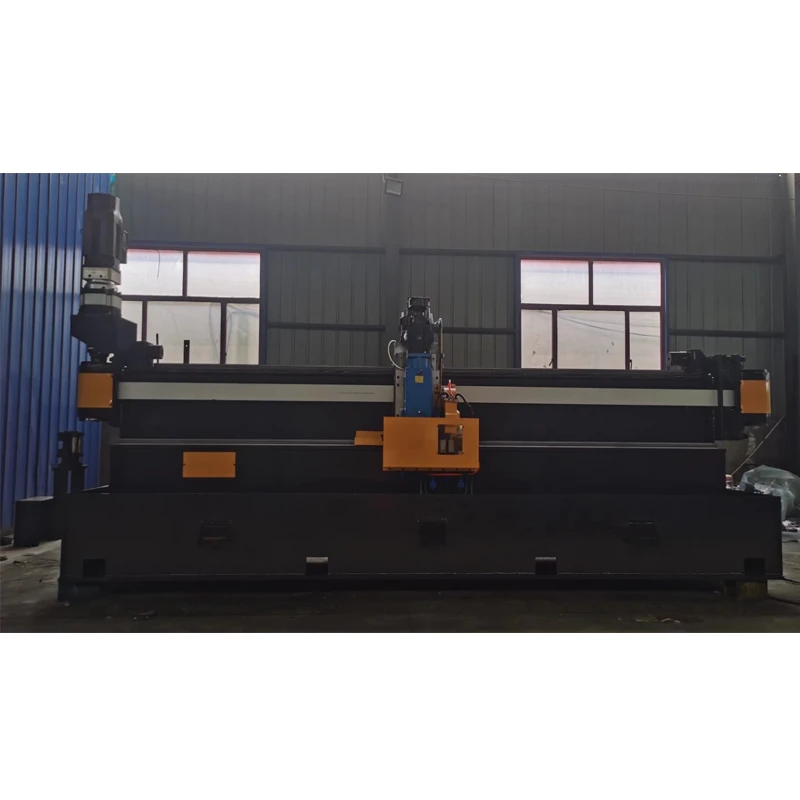Innovative Design and Efficiency of HF Tube Mill in Modern Manufacturing
Understanding the HF Tube Mill An Essential Tool in Modern Manufacturing
In the realm of manufacturing, particularly in metal processing and construction, the High-Frequency (HF) tube mill serves as a pivotal tool. This advanced machinery is designed specifically for the continuous production of welded steel tubes and pipes, playing a significant role in various industries, including automotive, construction, and energy. The HF tube mill stands out due to its efficiency, high production speed, and the ability to manufacture tubes with precise dimensions and excellent quality.
The Working Principle of HF Tube Mills
The HF tube mill operates on the principle of high-frequency welding, where metal strips are formed into a tube shape and welded at their edges. This process begins with a series of rollers that shape flat steel strips into cylindrical forms. As the edges of the metal strip come together, they pass through an induction coil that generates high-frequency electromagnetic fields. These fields heat the edges of the strip to a point where they become pliable and bond together, forming a strong weld without the need for filler material.
One of the key advantages of the HF welding process is its speed. Tubes can be produced at rates often exceeding 100 meters per minute, significantly outperforming traditional welding methods. This rapid production rate allows manufacturers to meet high demand efficiently while maintaining high-quality standards.
Advantages of HF Tube Mills
1. High Efficiency HF tube mills are designed for continuous operation, allowing for the rapid production of welded tubes. This efficiency translates into lower production costs and shorter lead times for end products.
2. Versatility These mills can handle a variety of materials, including carbon steel, stainless steel, and other alloys. The ability to produce different types and sizes of tubes makes HF tube mills an invaluable asset in diverse industries.
hf tube mill

3. Quality Assurance The welding process in HF tube mills leads to strong, uniform joints that can withstand high pressure and stress. Advanced inspection systems can also be integrated to ensure that each tube meets specific quality standards.
4. Customization Manufacturers can easily adjust parameters such as tube diameter, wall thickness, and length according to customer specifications. This flexibility is essential for catering to the unique demands of various applications.
Applications of HF Tube Mills
HF tube mills are utilized in several industries. In the construction sector, they produce structural pipes and tubing used in scaffolding and frame construction. In the automotive industry, they manufacture exhaust pipes and other durable components. Moreover, the energy sector employs these mills to create tubing for oil and gas applications, where strength and durability are critical.
The Future of HF Tube Mills
As technology advances, the HF tube mill is set to evolve further. Innovations such as automation, artificial intelligence, and improved control systems are poised to enhance the efficiency and quality of tube production. Furthermore, as demand for lightweight and high-strength materials grows, the HF tube mill will likely adapt to accommodate new materials and processes that meet modern engineering standards.
In conclusion, the HF tube mill represents a significant advancement in manufacturing technology. With its ability to produce high-quality welded tubes quickly and efficiently, it is a crucial equipment in various industries. As manufacturing demands continue to evolve, HF tube mills will undoubtedly play an essential role in shaping the future of production, ensuring that manufacturers can meet the needs of an increasingly competitive market.
-
High Frequency Straight Seam Welded Pipe Production Line-BzZhou Xinghua Machinery Equipment Manufacturing Co., LTD.|Precision Welding, High EfficiencyNewsJul.30,2025
-
High Frequency Straight Seam Welded Pipe Production Line|BzZhou Xinghua|Precision Welding&EfficiencyNewsJul.30,2025
-
High Frequency Straight Seam Welded Pipe Production Line - BzZhou Xinghua|Precision Engineering&EfficiencyNewsJul.30,2025
-
High-Frequency Straight Seam Welded Pipe Production Line-BzZhou Xinghua Machinery Equipment Manufacturing Co., LTD.NewsJul.30,2025
-
High-Frequency Straight Seam Welded Pipe Production Line-BzZhou Xinghua Machinery Equipment Manufacturing Co., LTD.|Precision Manufacturing, High EfficiencyNewsJul.30,2025
-
High Frequency Straight Seam Welded Pipe Production Line-BzZhou Xinghua Machinery Equipment Manufacturing Co., LTD.|Precision Steel Pipe Manufacturing&Industrial EfficiencyNewsJul.29,2025


